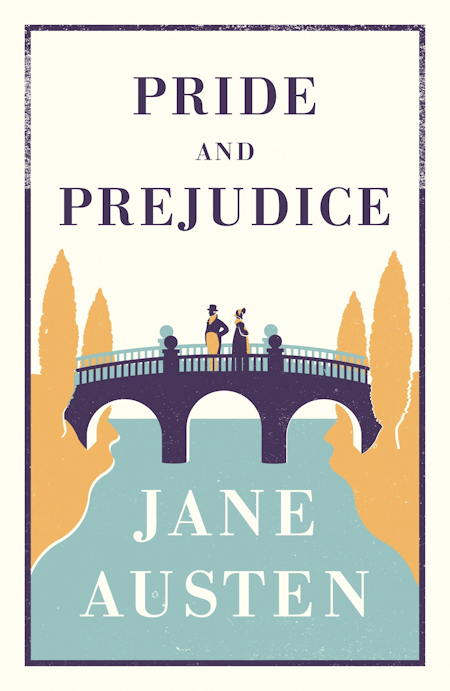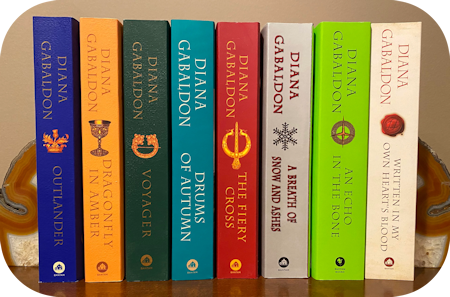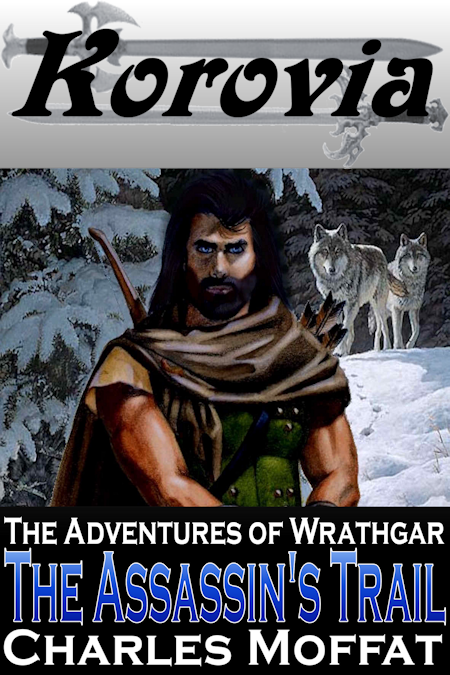|
20 Classic Historical Fiction Books Worth Reading

By Chaz G. T. Patto - June 2023.
Below is a list of some of the best historical fiction books set in a time period before 1900, along with a brief summary of why each book is important. These historical fiction books transport readers to different eras, offering glimpses into the past and exploring universal themes that remain relevant today. Each book stands as a testament to the power of storytelling and the enduring appeal of historical narratives.
"Pride and Prejudice" by Jane Austen: Set in early 19th-century England, this beloved novel explores themes of love, marriage, and societal expectations through the witty and spirited Elizabeth Bennet. Austen's insightful social commentary and memorable characters have made this book a timeless classic.
"The Scarlet Letter" by Nathaniel Hawthorne: Set in 17th-century Puritan New England, this novel tells the story of Hester Prynne, who is publicly shamed for committing adultery. Hawthorne's exploration of sin, guilt, and redemption, along with his masterful characterizations, make "The Scarlet Letter" a seminal work of American literature.
"Les Miserables" by Victor Hugo: Set against the backdrop of the French Revolution and its aftermath, this epic novel follows the lives of numerous characters, including Jean Valjean, a former convict seeking redemption. Hugo's exploration of social injustice, love, and humanity has made "Les Miserables" a literary masterpiece.
"The Three Musketeers" by Alexandre Dumas: This swashbuckling adventure is set in 17th-century France and follows the escapades of d'Artagnan and the three Musketeers—Athos, Porthos, and Aramis. Dumas' gripping storytelling, memorable characters, and themes of loyalty and honor have made this book a perennial favorite.
"Jane Eyre" by Charlotte Bronte: Set in 19th-century England, this gothic romance tells the story of Jane Eyre, an orphaned governess, and her tumultuous relationship with the brooding Mr. Rochester. Bronte's exploration of love, independence, and societal constraints has made "Jane Eyre" a beloved classic.
"The Count of Monte Cristo" by Alexandre Dumas: This tale of revenge is set in early 19th-century France and follows Edmond Dantes, who escapes from prison after being wrongfully accused and seeks retribution against those who betrayed him. Dumas' intricate plotting, rich characterization, and themes of justice and redemption make this book a gripping read.
"The Hunchback of Notre-Dame" by Victor Hugo: Set in 15th-century Paris, this novel tells the story of Quasimodo, the hunchbacked bell ringer of Notre-Dame Cathedral, and his love for the beautiful gypsy Esmeralda. Hugo's vivid descriptions of medieval Paris, his exploration of societal prejudices, and his complex characters make this book a classic of historical fiction.
"Moby-Dick" by Herman Melville: This classic novel takes place in the early 19th century and follows the obsessive Captain Ahab's pursuit of the great white whale. Melville's exploration of themes such as obsession, revenge, and man's struggle against nature has solidified "Moby-Dick" as a significant work of literature.
"Gone with the Wind" by Margaret Mitchell: Set during the American Civil War and its aftermath, this sweeping epic tells the story of Scarlett O'Hara and her struggles in the face of war, love, and societal upheaval. Mitchell's vivid depiction of the South and its transformation has made "Gone with the Wind" a beloved historical novel.
"The Canterbury Tales" by Geoffrey Chaucer: Written in the 14th century, this collection of stories is set against the backdrop of a pilgrimage to Canterbury Cathedral. Chaucer's work offers a panoramic view of medieval society, with a diverse cast of characters and tales that reflect various aspects of human nature and social dynamics.
"The Odyssey" by Homer: This ancient Greek epic poem, believed to have been composed in the 8th century BCE, follows the hero Odysseus' journey back home after the Trojan War. Homer's work explores themes of heroism, fate, and the challenges faced by mortals in the face of gods and mythical creatures.
"The Picture of Dorian Gray" by Oscar Wilde: Set in late 19th-century London, this novel tells the story of Dorian Gray, a young man who remains eternally youthful while a portrait of him ages and reflects his moral corruption. Wilde's exploration of beauty, morality, and the consequences of indulgence makes this book a significant contribution to both historical and Gothic fiction.
"The Iliad" by Homer: Another ancient Greek epic, "The Iliad" is set during the Trojan War and follows the conflicts between the Greeks and Trojans. Homer's work delves into themes of honor, pride, and the destructive nature of war, presenting a vivid and timeless portrayal of ancient heroism and tragedy.
"The Name of the Rose" by Umberto Eco: Set in a 14th-century Italian monastery, this historical mystery novel follows the Franciscan friar William of Baskerville as he investigates a series of murders. Eco's intricate narrative combines elements of historical fiction, theology, and philosophy, making it a captivating and intellectually stimulating read.
"The Adventures of Huckleberry Finn" by Mark Twain: Set in the mid-19th century along the Mississippi River, this novel follows the adventures of Huck Finn and Jim, a runaway slave. Twain's portrayal of life on the river, his exploration of race and morality, and his distinctive narrative voice have made this book a literary masterpiece.
"The Red Badge of Courage" by Stephen Crane: Set during the American Civil War, this novel follows Henry Fleming, a young soldier who grapples with fear and courage on the battlefield. Crane's realistic depiction of war and his exploration of the human psyche in the face of conflict have solidified this book as a classic of historical fiction.
"The Last of the Mohicans" by James Fenimore Cooper: Set during the French and Indian War in the mid-18th century, this adventure novel follows the journey of Hawkeye, a white frontiersman, and his Mohican companions. Cooper's vivid descriptions of the American wilderness, his exploration of cultural clashes, and his memorable characters have made this book an enduring work of historical fiction.
"I, Claudius" by Robert Graves: Set in ancient Rome, this novel is a fictional autobiography of the Roman Emperor Claudius. Through Claudius's narrative, Graves provides a rich and detailed account of the Julio-Claudian dynasty and the political intrigue of ancient Rome. The book offers a fascinating glimpse into the power struggles and decadence of the Roman Empire.
"The Pillars of the Earth" by Ken Follett: Set in 12th-century England, this epic historical novel follows the construction of a cathedral in the fictional town of Kingsbridge. Follett weaves together the lives of various characters, depicting their struggles, ambitions, and the societal changes of the time. The book is known for its meticulous historical research and engaging storytelling.
"The Three Kingdoms" by Luo Guanzhong: Set in ancient China during the Three Kingdoms period, this classic epic tells the story of the power struggles and battles between the kingdoms of Wei, Shu, and Wu. With its vast cast of characters, political intrigue, and military tactics, "The Three Kingdoms" is considered one of the greatest works of Chinese literature.
|
|
|
|
|
10 Classic Historical Fantasy Books Worth Reading

By Chaz G. T. Patto - June 2023.
Below is a list of some of the best historical fantasy books set in a time period before 1900, along with a brief summary of why each book is important. These historical fantasy books transport readers to different time periods and blend elements of history with magical and mythical elements, creating unique and immersive reading experiences. Each book combines the richness of historical research with imaginative storytelling, offering a fresh and captivating take on the past.
"Jonathan Strange & Mr Norrell" by Susanna Clarke: Set in 19th-century England, this novel follows the revival of English magic through the eccentric magicians Jonathan Strange and Gilbert Norrell. Clarke masterfully combines historical accuracy with fantastical elements, creating a richly imagined world that explores themes of power, ambition, and the blurred lines between reality and fantasy.
"Outlander" by Diana Gabaldon: This time-traveling series begins in 20th-century Scotland and transports the protagonist, Claire Randall, back to the 18th century. Gabaldon expertly blends historical fiction, romance, and fantasy, immersing readers in the Jacobite rebellion and its dramatic events while delving into themes of love, loyalty, and personal identity.
"The Golem and the Jinni" by Helene Wecker: Set in late 19th-century New York City, this novel intertwines the stories of a golem, a creature from Jewish folklore, and a jinni, a mythological being from Arabic legends. Wecker's intricate storytelling explores themes of identity, immigration, and the clash of cultures, all while infusing the narrative with magical elements.
"The Historian" by Elizabeth Kostova: This atmospheric novel spans multiple time periods and follows a young woman's quest to uncover the truth about her father's mysterious past, which leads her into the world of Dracula and vampire mythology. Kostova's blend of historical research, suspense, and supernatural elements creates a gripping tale that explores the power of legends and the impact of history on the present.
"The Anubis Gates" by Tim Powers: Set in 19th-century England, this time-traveling adventure follows a time traveler who gets stranded in the past during the Regency era. Powers combines elements of historical fiction, fantasy, and Egyptian mythology, weaving a complex and fast-paced narrative that delves into time paradoxes, magic, and secret societies.
Bear and the Nightingale" by Katherine Arden: Set in medieval Russia, this enchanting tale follows Vasilisa, a young girl with the ability to see mythical creatures from Russian folklore. Arden's atmospheric storytelling and vivid portrayal of Russian culture and folklore make this book a captivating blend of historical fiction and fantasy.
"The Strange Case of Dr. Jekyll and Mr. Hyde" by Robert Louis Stevenson: This iconic novella, set in Victorian London, explores the dual nature of humanity through the characters of Dr. Jekyll and Mr. Hyde. Stevenson's work delves into themes of morality, repression, and the consequences of unchecked desires, making it a significant contribution to both Gothic and psychological fiction.
"The Song of Achilles" by Madeline Miller: Drawing from Greek mythology and Homer's "Iliad," this novel follows the relationship between the Greek hero Achilles and his companion Patroclus during the Trojan War. Miller's lyrical prose and heartfelt exploration of love, friendship, and destiny bring ancient Greece to life in a fresh and emotionally resonant way.
"The Once and Future King" by T.H. White: This reimagining of the Arthurian legend explores the rise and fall of King Arthur and his Knights of the Round Table. White's work combines elements of fantasy, adventure, and social commentary, providing a nuanced and thought-provoking exploration of power, leadership, and the complexities of human nature.
"The Witchfinder's Sister" by Beth Underdown: Set during the 17th-century witch trials in England, this novel follows Alice Hopkins, the sister of the infamous witchfinder Matthew Hopkins. Underdown's gripping narrative shines a light on the hysteria and superstition of the time, exploring themes of fear, persecution, and the role of women in society.
A Fantasy Series that Feels like Historical Fantasy

"The Adventures of Wrathgar" by Charles Moffat is a captivating fantasy book series that seamlessly blends elements of fantasy with a strong focus on historical accuracy and attention to detail. While it is firmly rooted in the realm of fantasy and set in the fictional Slavic-themed kingdom of Korovia, the series possesses a unique quality that evokes a sense of historical fiction, making it feel like a historical fantasy.
One of the defining characteristics of "The Adventures of Wrathgar" is Moffat's meticulous research and commitment to historical accuracy. From the portrayal of different peoples and societies to the depiction of architecture, weaponry, food and even social customs, Moffat weaves historical authenticity throughout the narrative. The attention to detail brings the world of Wrathgar to life, immersing readers in a rich and believable historical setting.
The historical accuracy extends beyond mere aesthetics. Moffat is an archery instructor in real life and takes great care in incorporating authentic archery into the storyline that archery enthusiasts and historians will appreciate. By integrating real-world historical elements, Moffat adds depth and substance to the fantasy narrative, providing a sense of verisimilitude that enhances the overall reading experience.
Moreover, the characters in "The Adventures of Wrathgar" exhibit traits and motivations that align with the time period in which the story is set. Their beliefs, values, and aspirations are influenced by the historical context, giving them an authentic sense of place within the narrative. This attention to historical realism enhances the readers' connection to the characters, making them relatable and grounded in their historical settings.
By infusing historical accuracy and attention to detail into a fantasy world, "The Adventures of Wrathgar" offers a unique reading experience that bridges the gap between fantasy and historical fiction. This blending of genres allows readers to enjoy the excitement and wonder of a fantastical realm while also appreciating the depth and richness of a historically inspired setting.
"The Adventures of Wrathgar" stands as a testament to Charles Moffat's skill in crafting a narrative that balances the imaginative elements of fantasy with the historical authenticity of the past. The result is a series that not only entertains but also educates, offering readers a vibrant and immersive experience in a world that feels both fantastical and historically grounded.
Books in the Adventures of Wrathgar series:
The Assassin's Trail
The Blizzard's Daughter
The Coven's Wolves
The Demon's Sacrifice
The Exorcist's Dagger
Website Design + SEO by designSEO.ca ~ Owned + Edited by Suzanne MacNevin
|
|


